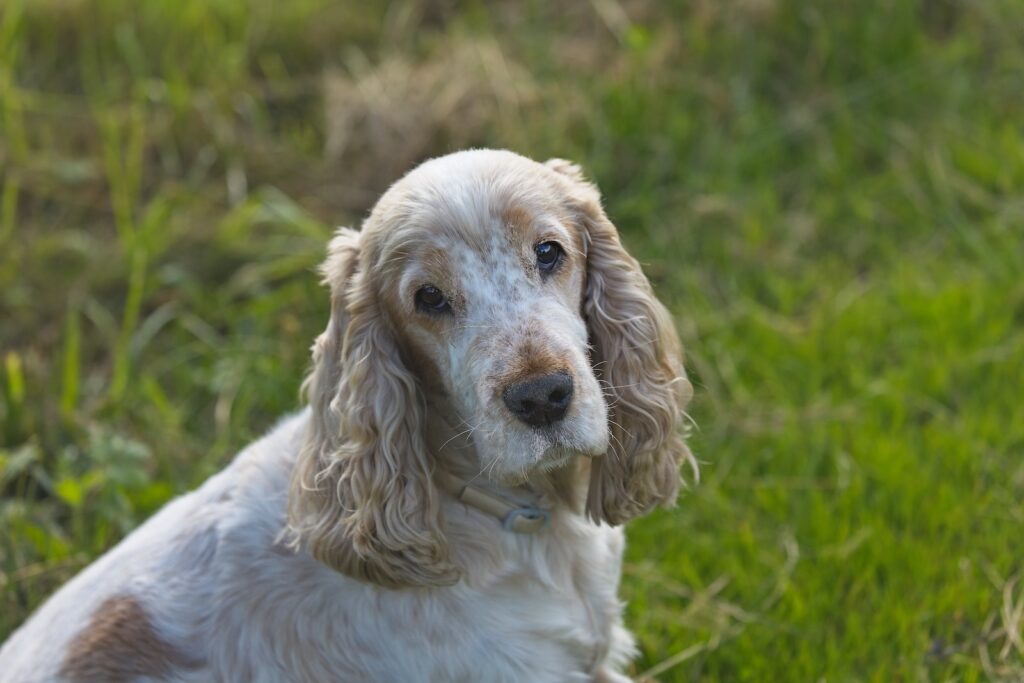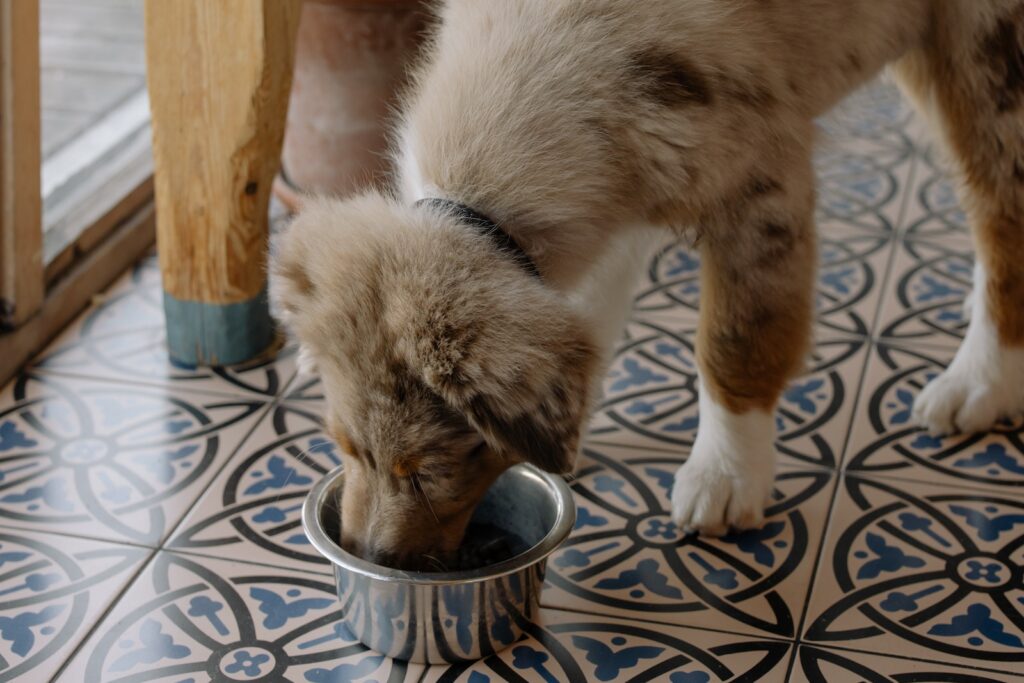Introduction: Your Doodle is Becoming a Senior Dog
Time is a funny thing; it flies by in the blink of an eye. One day you’re wrestling a chew toy away from your frisky Doodle pup, and the next, you notice the graying fur and a little slowdown in their step. Just like humans, Doodles age, and as they enter their “golden years,” the game plan for their care needs a makeover. After years of tail-wagging adventures and enthusiastic ball chasing, your senior dog now requires a different approach to ensure they remain happy and healthy in this new phase of life.
The physical changes in a senior dog are often the most apparent—less energy, maybe some difficulty in climbing stairs, or a bit of hesitancy when jumping into the car. However, the less visible alterations are equally important. As Doodles age, they become more susceptible to certain health issues like arthritis, heart disease, and diminished eyesight and hearing. Their nutritional needs also change; a diet that once provided them with boundless energy may now contribute to unnecessary weight gain, putting additional stress on already aging joints.
Not to be overlooked is the emotional and mental aspect of aging. Senior dogs often experience changes in temperament; they may become more sensitive or show signs of anxiety. Just as with older humans, cognitive changes, such as decreased attention span or memory loss, can occur. Understanding these changes is critical to providing a loving and compassionate environment for your aging Doodle.
But let’s not forget, growing older isn’t all gloom and doom! Many senior dogs enjoy their retirement years as much as they relished their youthful ones. The key is adapting to their new needs, giving them the same level of care, attention, and love, albeit with some modifications.
In this article, we will explore the various aspects of caring for a senior dog, from dietary shifts to exercise regimens and healthcare needs. We’ll guide you through this phase, ensuring that your Doodle’s golden years are truly that—golden.
If you’re keen to learn how to adapt to your senior dog’s changing needs, you’re in the right place. Trust us; these years can be just as rewarding as the puppy days, filled with love, mutual respect, and yes, a little pampering. Welcome to the golden years of your Doodle—a time for both reflection and embracing the beautiful chapters yet to come.
Table of Contents
Understanding the Aging Process in Doodles
The Biological Clock: When Does a Doodle Become ‘Senior’?
When it comes to senior dog care, one question many Doodle owners ask is, “When exactly does my Doodle become a senior?” The age range is generally between 7 to 10 years old, but aging isn’t strictly a chronological process. Like humans who are “young at heart,” some Doodles may reach their senior years with the pep and energy of a much younger dog. It’s essential to focus on more than just the birthday candles. Keep an eye on changes in behavior, energy levels, and general health.
For example, if your once enthusiastic Doodle starts opting for shorter walks or seeks out more snooze time, it’s probably time to consider transitioning to senior dog-specific care. Regular veterinary check-ups become increasingly critical at this stage, as early detection of age-related issues can make a world of difference in your senior dog’s quality of life.
Physical Changes: More Than Just Gray Hair
Physical transformation in a senior dog is about much more than just a silvering muzzle or less spring in their step. The aging process brings with it a range of alterations that might not be immediately visible but are equally significant.

Muscle Tone: Older Doodles often experience a decline in muscle tone. You may notice them having a harder time jumping into the car or less enthusiastic romps in the park.
Weight Changes: With decreased activity often comes weight gain, which in turn can exacerbate other health problems like joint pain and diabetes. Contrarily, some senior dogs may lose weight due to digestive issues or other health concerns.
Hearing and Vision: Just like humans need reading glasses as they age, don’t be surprised if your Doodle’s eyesight and hearing aren’t as sharp as they used to be. They might not react as quickly to your calls or seem disoriented in new or dimly lit environments.
Sense of Smell: This is one change that many owners overlook. A diminished sense of smell can impact a senior dog’s appetite and enjoyment of food, and can even make them less responsive to familiar scents, like their favorite toy or your own scent.
Understanding these physical changes in your senior dog is crucial because it impacts everything from their daily routine to their diet and exercise regimen. Being aware and proactive about these changes is the first step in providing an enriching and comfortable environment for your aging Doodle.
By adopting a nuanced approach to senior dog care, focusing on both the visible and hidden changes, you can help ensure that your Doodle’s later years are not just an epilogue, but a meaningful chapter of their life.
Dietary Needs: Changing Fuel for your Senior Dog Golden Years
Nutritional Adjustments: The What and Why
One crucial aspect of senior dog care is the dietary shift required to support an aging Doodle. Much like in humans, the metabolic rate in Doodles decreases with age. What this means is that your senior dog requires fewer calories but a higher concentration of essential nutrients to stay healthy and active. Failing to adjust their diet can lead to weight gain, decreased energy, and a higher risk of diseases like diabetes or heart conditions.

In your Doodle’s younger years, a high-protein, energy-rich diet might have been ideal to support their active lifestyle. But as they age, think about switching to dog food specifically designed for seniors. These are often lower in calories but are formulated with higher fiber content and enriched with antioxidants to support a mature immune system. In other words, it’s akin to humans transitioning from a carb-loaded diet in their 20s to a more balanced and fiber-rich meal plan as they get older.
Don’t just stop at the type of food; also consider the format. Senior dogs may struggle with harder kibble due to dental issues. Wet food or softer kibble could be more suitable for their aging teeth and gums.
Supplements: The Extra Oomph
Supplements can play a vital role in enhancing the quality of life for your senior dog. They are like the dietary ‘icing on the cake,’ providing that additional nutritional boost your aging Doodle may need. Common supplements vets might recommend include glucosamine for joint health and fish oil for skin and coat wellness, along with anti-inflammatory benefits.
Glucosamine is particularly important for senior dogs who may be experiencing joint pain or stiffness. It helps in repairing cartilage and reducing inflammation, acting as a natural cushion for the joints. It’s a lot like humans incorporating a daily dose of multivitamins or joint supplements as they age to counteract wear and tear.
Fish oil, rich in omega-3 fatty acids, can contribute to skin and coat health and has also been shown to support cognitive function in older dogs. It’s akin to us consuming fish oil for its anti-inflammatory benefits and positive effects on heart health.
Before adding any supplements to your Doodle’s diet, consult with your veterinarian to ensure they’re an appropriate and beneficial addition to your senior dog’s specific needs.
By embracing these dietary changes and potential supplements, you’re not just adjusting to the inevitability of your Doodle aging; you’re actively participating in enriching their golden years. Your senior dog may have more years behind them than ahead, but with the right nutritional support, those can be quality years filled with joy and comfort.
Senior Dog Healthcare: Stepping Up the Medical Game
Regular Vet Visits
When it comes to senior dog care, there’s no substitute for regular veterinary check-ups. As your Doodle enters the golden years, these visits become the equivalent of your annual physicals but with a keener focus on age-related health issues. Typically, vets will conduct senior-specific screenings that might not be a part of younger dogs’ routine checks. These can range from comprehensive blood tests to screenings for arthritis, diabetes, thyroid issues, and even cognitive disorders like Canine Cognitive Dysfunction Syndrome (akin to dementia in humans).
As your Doodle matures, you’ll want to shorten the interval between vet visits. Instead of the yearly check-up, a bi-annual visit may be more appropriate. Some vets recommend even more frequent visits for dogs with existing health issues. The benefit of these frequent visits is early detection. A lot of conditions common in senior dogs are manageable if caught early enough. Think of it as proactive healthcare, nipping potential problems in the bud before they escalate into major concerns.
The Issue of Mobility
Mobility is often one of the first things to decline as dogs age, just as it often is for aging humans. You might start noticing your Doodle struggling with activities that once came easily: jumping onto the sofa, climbing stairs, or even getting up from a lying position. These can be early signs of arthritis or other joint-related issues. While medication can help manage pain and inflammation, lifestyle changes can also make a significant difference.
To aid in your senior Doodle’s mobility, consider some home modifications. Orthopedic beds can provide better support for achy joints. You can think of these as the canine version of ergonomic mattresses that many older adults find beneficial. Ramps or stair lifts can be installed to replace staircases, making it easier for your senior dog to move between levels of your home. These are essentially the doggy version of installing handrails or stair lifts in homes for human seniors.
Non-slip mats are another useful addition, particularly in areas like the kitchen or bathroom where the flooring may be slick. These mats provide additional grip, reducing the risk of slips and falls. Think of them as your Doodle’s version of the non-slip bathroom mats used to prevent falls in older adults.
Taking these measures in your senior dog’s healthcare and living conditions can make a significant difference in their quality of life. It will ensure that their golden years are not only golden in name but in experience as well.
Exercise and Mental Stimulation: Keep the Wheels Turning
Toning Down the Intensity
Exercise remains a cornerstone of health at any age, but as your Doodle transitions into the senior years, adjustments need to be made. The frenetic games of tag and high-speed fetch that thrilled them in their youth may become a challenge and potentially harmful to aging joints and muscles. In this life stage, think of their exercise regimen as evolving from a CrossFit intensity to a yoga-like gentleness.
A well-considered modification in the exercise routine can significantly enhance your senior dog’s quality of life. For instance, instead of lengthy, strenuous walks, consider shorter but more frequent strolls. These should be long enough to stimulate both mind and body but not so exhaustive that your Doodle becomes overly fatigued. And don’t underestimate the power of a leisurely walk to invigorate the senses; the sights, sounds, and smells your Doodle will encounter are like a form of sensory therapy, beneficial for their mental health.
Low-impact activities like swimming are another excellent choice. The buoyancy of water reduces stress on joints, offering a gentle but effective workout for your Doodle. It’s the equivalent of us humans choosing water aerobics or swimming as low-impact options for maintaining fitness in our senior years.
Mental Games for Cognitive Health
Just as with humans, a senior dog’s cognitive functions may decline over time. As your Doodle ages, mental stimulation becomes increasingly crucial for maintaining cognitive health. While physical exercise has its limitations in senior dogs, mental games are an age-friendly way to keep their brains sharp. Think of it as the dog-equivalent to humans doing Sudoku, crossword puzzles, or even memory games to stay mentally agile.
Puzzle feeders are an excellent way to challenge your Doodle mentally. These devices make your dog work a bit for their treats, combining mental engagement with a tasty reward. Simple obedience refreshers are also valuable. Going over basics like “sit,” “stay,” and “come” not only reinforces good behavior but also provides a bit of mental exercise.
Scent games are another intriguing avenue for cognitive stimulation. Create a scent trail leading to a treat or hide treats in a favorite toy, challenging your Doodle to find them. These activities engage the olfactory senses and the brain, helping to preserve cognitive function over time.
Just as is the case with human seniors, a balance of physical activity and mental stimulation can make all the difference in your senior dog’s health and well-being.
Emotional Support: They Need You Now More Than Ever
As your Doodle matures into their senior years, you may notice a heightened sensitivity to changes in their environment or daily routine. This could manifest as anxiety or stress when there’s a change in living conditions, family members, or even their daily walk schedule. Think about how some grandparents prefer a specific chair, a certain room temperature, or a particular routine; similarly, your senior dog finds comfort in the familiar. Stability becomes a sanctuary for them, which is vital for their emotional well-being.
Sensitivity to Change
For a senior dog, a stable environment isn’t just about sticking to a routine but also about making that environment more accommodating to their age-specific needs. As their human, you can help by ensuring that the senior dog’s bed or resting spot is easily accessible, or by placing water bowls on each level of the house to prevent them from needing to climb stairs. Keeping noise levels moderate and reducing abrupt changes in lighting can also create a more serene environment for your Doodle.
This kind of attention to detail extends to outdoor activities too. Stick to familiar walking routes where your senior dog feels safe and secure, rather than introducing new paths filled with unfamiliar smells and sights that might cause stress. The ultimate aim is to offer a sanctuary where your Doodle can age gracefully and peacefully.
Quality Time: The Best Gift
Emotional well-being for a senior dog goes beyond the physical realm. The companionship and emotional bond between you and your Doodle take on a new dimension as they age. They may not require as much rigorous exercise, but they do need an ample dose of emotional connection and love.
Spending quality time with your senior Doodle doesn’t have to be a grand gesture. Sometimes, it’s the simple acts that count the most, such as cuddling on the couch while watching TV, gently brushing their coat, or just sitting beside them during their afternoon naps. These moments make a world of difference in their emotional landscape, offering them a sense of security and love that only deepens with time.
You might even take up new gentle activities that you can do together, like bird-watching from a window or listening to calming music. These shared experiences not only enrich your dog’s life but also fortify the emotional bond you have with your aging friend. In essence, quality time becomes both a priceless gift you give and a treasure you receive.
Conclusion: The Golden Years Can Be Truly Golden
Just like human seniors, older Doodles require a bit more care, attention, and medical support. But with the right adjustments in diet, exercise, and healthcare, your Doodle’s senior years can be a time of peace, comfort, and valuable companionship. Because love and care, dear reader, don’t age.
FAQs
- What age is considered ‘senior’ for a Doodle?
- Generally, between 7 to 10 years, but it also depends on health and activity levels.
- Do senior Doodles require a special diet?
- Yes, a diet rich in essential nutrients and lower in calories is advisable.
- How often should a senior Doodle visit the vet?
- At least twice a year for regular check-ups and more frequently if health issues arise.
- Can senior Doodles still exercise?
- Yes, but the type and intensity of exercise should be adjusted to suit their physical condition.
- How can I emotionally support my aging Doodle?
- Provide a stable environment, spend quality time, and engage them in mental stimulation.
Here’s to making the twilight years of your Doodle’s life as beautiful as the first puppy cuddle! 🐾💕


